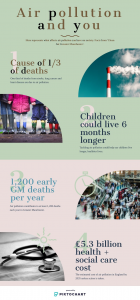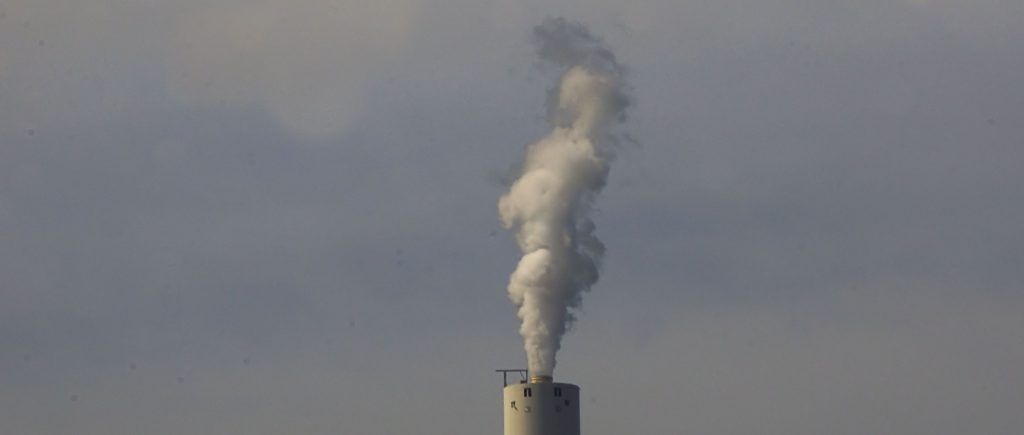Clean Air Greater Manchester asks “150 years ago Greater Manchester got clean water. Isn’t it time we got clean air?”
Air pollution has been linked to a range of illnesses, with it contributing to the equivalent of 1,200 deaths a year in Greater Manchester.
In Salford, this accounts for approximately 77% of nitrogen oxides emissions and 89% of particulate matter emissions.
The main source of air pollution in Greater Manchester is road transport.
💧 You wouldn’t drink dirty water.
💨 So why are you still breathing dirty air?
We have plans to tackle #airpollution. Find out more at: https://t.co/8YUCj2Z1Sl#CleanAirGM pic.twitter.com/eOBg8McbhT
— Salford City Council (@SalfordCouncil) February 29, 2020
Recently, Greater Manchester authorities have requested that the government provide funding ahead of the March Budget, as they have plans to tackle air pollution.
In 2019, the Greater Manchester Combined Authority (GMCA) submitted its Clean Air Plan outline business case to government which included:
The largest proposed Clean Air Zone in the UK, a funding package for businesses to upgrade to cleaner vehicles and a bid to treble the size of the region’s electric vehicle public charging network.
Polluted air is linked to #asthma, heart disease and lung #cancer, and 1,200 early deaths a year in Greater #Manchester.
Switch off your engine when stationary for you and your family’s health 🚗 💨
👉 https://t.co/29Z7h8CCXt #CleanAirGM pic.twitter.com/nuWrz1uNOz
— Salford City Council (@SalfordCouncil) March 1, 2020
A Clean Air Zone is an area where targeted action is taken in order to improve air quality and resources are prioritised in order to help the environment, to improve health benefits and supports economic growth.
These Clean Air Zones fit into two categories:
Non-charging Clean Air Zones which are areas used as a focus for action to improve air quality.
Charging Clean Air Zones are zones in which including everything above, vehicle owners are required to pay a charge to enter or move within the zone if they are driving a vehicle type in that zone.
The Mayor of Greater Manchester, Andy Burnham said, “we are serious about tackling air pollution across our region and, alongside the government, we recognise it is the most pressing environmental public health issue facing the country today.
“However, we can’t get on with our plans without a firm commitment about the vital financial support that will help businesses across Greater Manchester upgrade to cleaner vehicles, to avoid the Clean Air Zone daily charge.
“The government has told councils to develop ambitious plans to tackle air quality. Our plan is ambitious but it needs a multi-million-pound financial support package to help local businesses, and requires the government to not duck from its responsibilities.
“It needs to commit the funds to delivering this vital work and supporting companies across the region to move towards a more sustainable future.”
To help to reduce air pollution you can:
– Walk or cycle more instead of using a vehicle and choose to do this on quieter streets, as this can lower your exposure to pollution.
– Catch the bus, train or tram more.
– If you are using a vehicle make sure the engine is turned off when your vehicle is stationary.
– Avoid travelling during rush hour as air pollution is at peak during this time.
Find out more about air pollution and what is being done about it at: https://cleanairgm.com/

















Recent Comments